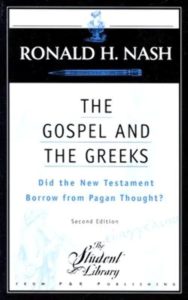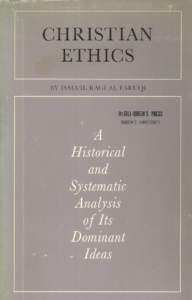In response to many requests, I am posting the print edition of an article written when I was much younger, “Pluralism and the Particularity of Salvation in Christ,” Transformation (1998), pp. 10-15. Ah, how time flies and I don’t seem to have grown wiser. To download the pdf version of this print edition: Pluralism Particularity … Continue reading “Pluralism and the Particularity of Salvation in Christ (Print Edition)”
In response to many requests, I am posting the print edition of an article written when I was much younger, “Pluralism and the Particularity of Salvation in Christ,” Transformation (1998), pp. 10-15. Ah, how time flies and I don’t seem to have grown wiser.
To download the pdf version of this print edition:
Pluralism Particularity Salvation Christ Transformation1998
Throughout this paper, it is my assumption that Christianity promotes and practices social tolerance and affirms plurality. What I dispute is the contention that social tolerance is possible only if Christians embrace a prescriptive form of religious pluralism. I shall further address the issue of prescriptive pluralism, henceforth referred to as religious pluralism within the framework of Christian discourse, and analyze the logic under-girding religious pluralism. In particular, I shall argue that religious pluralism is not only internally incoherent but that in seeking the least common denominator, pluralism offers a religious faith that is too dilute to meet religious needs. Finally, religious pluralism entails the abandonment of the central beliefs that historically define Christian identity such as normative revelational truths and the historical particularity of the incarnation of God in Christ. As such religious pluralists represented by major thinkers like John Hick and Paul Knitter have no basis to speak on behalf of Christianity….
…But why should God need to intervene in the human predicament in the first place? How does the Christian teaching of the Incarnation of Christ fit in? Following White I would like to propose the “Criterion of Moral Authenticity” as a means to shed light on this issue. To begin with, estrangement between God and man is overcome not by special knowledge but by a demonstration of perfect love. Given the magnitude of the human predicament, surely such a revelation demands a costly love which does not compromise God’s holiness. It has to be costly love to win over human sin and rebelliousness. But as White asserts, “Unless and until God himself has experienced suffering, death, and the temptation to sin, and overcome them, as a human individual, he has no moral authority to overcome them in and with the rest of humanity.”[Vernon White, Atonement and Incarnation (CUP 1991), p. 38] Continue reading “Pluralism and the Particularity of Salvation in Christ (Print Edition)”


